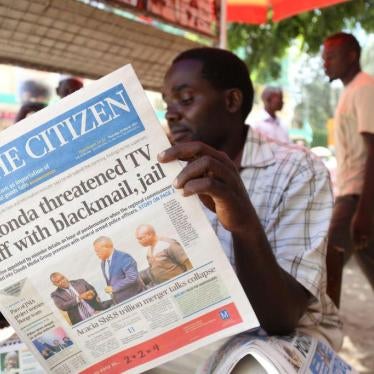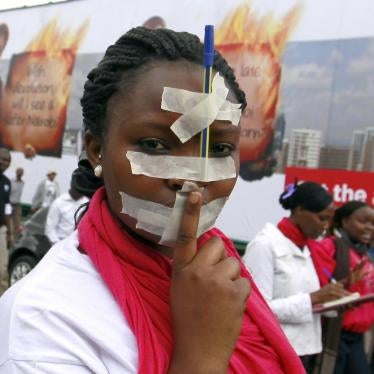(Lusaka) - Government leaders gathered this week at a summit in Lusaka, Zambia should urgently press Zimbabwe’s government to end its broadscale attack on human rights, Human Rights Watch said in a briefing paper released today. Human Rights Watch called on the Southern African Development Community (SADC) to deploy human rights monitors to Zimbabwe to assess the situation.
The summit, which takes place on August 16 and 17, 2007 is expected to address the ongoing political and economic crisis in Zimbabwe. At an extraordinary summit in Dar es Salaam, Tanzania, in March 2007, SADC asked South African president Thabo Mbeki to mediate talks between the ruling Zimbabwe African National Union-Patriotic Front (ZANU-PF) and the two factions of the opposition Movement for Democratic Change (MDC). Mbeki is expected to report back on the progress of the talks in Lusaka.
“SADC members must take strong and effective action to deal with one of the region’s most grave crises – Zimbabwe,” said Peter Takirambudde, Africa director at Human Rights Watch. “SADC’s credibility as a real force for change on human rights is on the line here and its leaders should insist on tangible improvements in Zimbabwe.”
Human Rights Watch urged SADC to more explicitly incorporate human rights concerns in the mediation talks and set clear benchmarks for progress within a clear time-frame. The summit should make a public acknowledgement of ongoing human rights problems, Human Rights Watch said, and deploy SADC human rights monitors as an essential first step in protecting Zimbabweans from state brutality.
In the past, SADC has failed to extract concrete commitments on human rights from the government of Zimbabwe. Although serious human rights problems have plagued Zimbabwe for the past seven years, the conclusions issued after SADC’s past summits have failed to adequately reflect these problems. For example, the final communique of the extraordinary summit in Tanzania failed to mention the arrests and beatings of opposition and civil society leaders or the broader human rights situation in Zimbabwe.
The 13-page briefing paper, “A Call to Action: The Crisis in Zimbabwe – SADC’s Human Rights Credibility on the Line,” highlights priority areas of concern on human rights and proposes a number of actions to help tackle the crisis. The government of Zimbabwe has used methods against critics that range from intimidation, threats and harassment to physical attacks and torture. Hundreds of civil society activists – including human rights defenders, independent journalists and members of the political opposition – have been arbitrarily arrested and beaten by police and other security agents.
Police often use unnecessary and lethal force to violently disrupt peaceful protests. Recent examples highlighted in the memorandum include: the arrest and assault in police custody of more than 200 activists from the National Constitutional Assembly (NCA) when they attempted to demonstrate against the Constitutional Amendment Bill in Harare on July 25, and the arrest and assault of up to 20 women from Women of Zimbabwe Arise (WOZA) during peaceful protests in Bulawayo on June 6.
Human Rights Watch called upon SADC to send a clear, visible and unambiguous message from this week’s summit, repudiating the Zimbabwean government’s policy of political repression through laws and the unaccountability of Zimbabwe’s police, army and security forces.
“The political and human rights crisis in Zimbabwe, which threatens to destabilize the whole region, is crying out for urgent and effective leadership,” said Takirambudde.
“Only by addressing the human rights violations in Zimbabwe can SADC hope to nurture a political and economic revival in the country.”






